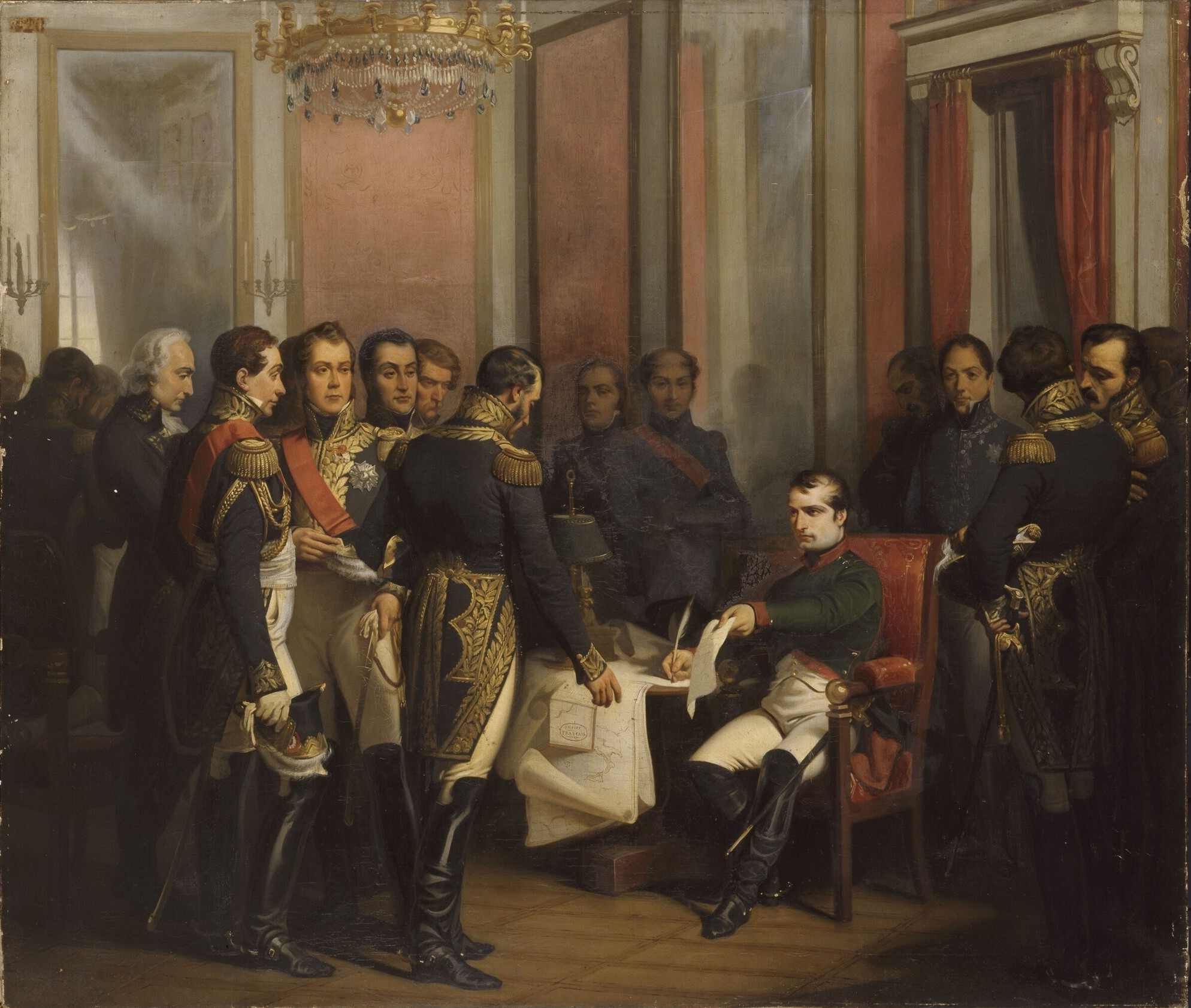Napoleon’s abdication at Fontainebleau on April 11, 1814, marked a pivotal moment in European history during the Napoleonic Wars. With France facing invasion by the Allied forces, including the armies of Russia, Austria, Prussia, and others, Napoleon found himself in a precarious position.
Under mounting pressure from his own officers and with his military options dwindling, Napoleon made the difficult decision to abdicate unconditionally. This event took place at the Palace of Fontainebleau, located southeast of Paris.
Napoleon’s abdication led to his exile to the island of Elba, off the coast of Italy. However, this was not the end of Napoleon’s story. He would later return to France for the Hundred Days, a brief period of renewed rule in 1815, before being defeated at the Battle of Waterloo and subsequently exiled to the remote island of Saint Helena in the South Atlantic, where he would spend the remainder of his life.

